A Media Luz (tango)
A Media Luz (tango)
It’s the 1920’s. They might be young or not. They have met at a milonga or not. He might be charming, she might be pretty or not. One sure is certain, if they want to see one another again, in a more ‘intimate’ setting, they’ll probably go to his bachelor flat in downtown Buenos Aires.
A media luz describes these bachelor flats used for fun and the fussy sex of the period. In these flats, everything was carefully thought of to create a suitable atmosphere: todo a media luz (“everything in dimmed light”).
A Media Luz (tango)
"A media luz" is an intriguing example of the romantic tango. Edgardo Donato composed this piece in 1925. Carlos Cesar Lenzi wrote lyrics.
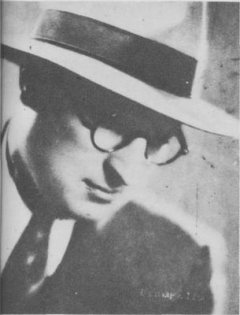
Edgardo Donato
The outstanding and recognized Uruguayan musician Héctor María Artola, with a sharp critical vision, said: “The city of Buenos Aires, is the only town in the world where tango is well played, including Montevideo”.
Edgardo Donato (1897 – 1963), violinist, orchestra leader and composer was born in the Buenos Aires neighborhood of San Cristóbal. He was the son, like many other outstanding artists, of an Italian couple.
While still a child, with his family he moved to live in the city of Montevideo, capital of Uruguay. When he was ten he started to study music with his father and later he studied at a conservatory named Franz Liszt. When he was 21 he was ready to work as a professional.
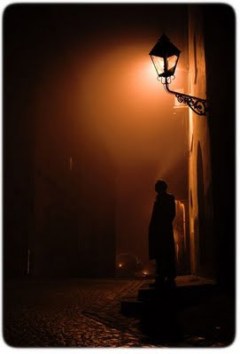
A Media Luz
He began with his father in the opera music field but, soon, he managed to free himself from that yoke and joined -always in Montevideo- the orchestra of the Negro Quevedo, an Argentine bandoneonist.
In 1922 he composed his first hit, the tango "Julián", with lyrics by José Panizza, dedicated to the Uruguayan leader Julián González. Donato tried to sell his tango for twenty pesos, later he tried for less but he failed either. Finally he published it on his own account.

A Media Luz, cover
In 1923 his numbers "Corazoncito de oro", "Beba" and "Muchacho" were released, all them with lyrics by Celedonio Flores. Soon thereafter, he composed what would be one of the tangos with most recordings in the world in the history of the genre: "A media luz".
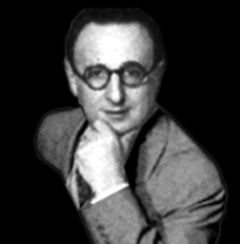
Edgardo Donato
"I composed ‘A media luz’ during a trip on streetcar", its composer said, and it was premiered in Montevideo, on a musical revue named "Su majestad la revista", with the voice of the Chilean vedette Lucy Clory. Soon later was recorded by Firpo, Canaro and Gardel.
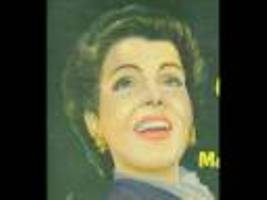
Lucy Clory
The orchestra of Edgardo Donato was one of those which were included in the movie "Tango", from 1933, the first talkie with complete soundtrack in the history of Argentine cinema. His orchestra and his name are long since tango bulwarks.
He was composer of over two hundred numbers, some of them true classics of the tango repertory: "A media luz", "Julián", "Muchacho", "El huracán", "T.B.C."
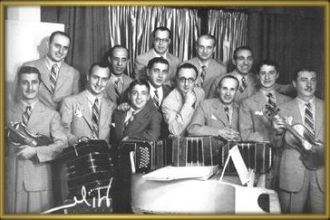
Orchestra of Edgardo Donato
Carlos Cesar Lenzi (1895 – 1963), poet was born in Montevideo and died in Buenos Aires. He was playwright and official of the foreign service of his country.
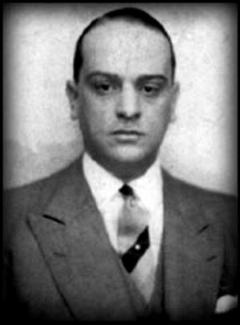
Carlos Cesar Lenzi
His first play, “El domador”, was premiered in 1918 and the several tens followed it. These plays do not make us remember Lenzi’s name but it does a little tune with lyrics. He wrote its lyrics in 1925 and handed it to Edgardo Donato.
After the success of “A media luz”, Lenzi wrote other tangos. The latter were written in Paris during the lyricist’s stay in that city. All his numbers reveal that Lenzi was a man with a refined spirit that traveled throughout the world. But none of them reached the acclaim of “A media luz”.
He was a loyal friend of Carlos Gardel’s with whom he shared unforgettable times in Paris and at the French Riviera.
A Media Luz immerses the listener in the blissful, decadent opulence of an opulence rented by a wealthy man for a secret amorous liaison, celebrating exactly the sort of situation that the older, working-class tango condemns.

A Media Luz
The song describes with a lot of humour the measures taken to protect the privacy of these apartments – “there’s no concierge and no neighbour”, the rugs “muffle sounds” and even the cat keeps quiet: “a cat made of porcelain so that it doesn’t mew at love.”
Don’t be surprised by the last paragraph: until the beginning of the 1930’s, cocaine, morphine and opium had a legal medical usage. Being sold as preparations in pharmacies, these drugs were commonly found in medicine cabinets at home.
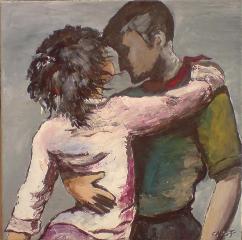
A Media Luz tango
A Media Luz
Corrientes, 3-4-8, segundo piso ascensor. No hay porteros, ni vecinos, adentro, cocktail y amor... Pisito que puso Maple, piano, estera y velador; un telefón que contesta, una fonola que llora viejos tangos de mi flor, y un gato de porcelana pa’ que no maúlle al amor. Y todo a media luz, que es un brujo el amor... a media luz los besos, a media luz los dos... Y todo a media luz, crepúsculo interior, que suave terciopelo la media luz de amor. Juncal 12-24. Telefoneá sin temor; de tarde, té con masitas, de noche, tango y amor; los domingos, té danzante, los lunes, desolación. Hay de todo en la casita: almohadones y divanes como en botica... cocó! Alfombras que no hacen ruido y mesa puesta al amor.

A Media Luz, 1925
In Half Light (translation Alberto Paz)
3-4-8 Corrientes Street, second floor, elevator. There are no doormen or neighbors, inside, cocktails and love... A little flat furnished in maple, A piano, a mat and a nightstand; a telephone to answer, a victrola that cries old tangos of my youth, and a cat that's made of porcelain so it won't meow at love. And all in half light... For love is a wizard! In half light the kisses, In half light the two of us. And all in half light, twilight inside... What soft velvet, the half light of love! 12-24 Juncal Street, call without fear; In the afternoon, tea with pastries; at night, tango and song. On Sundays, a tea dance; on Mondays, desolation. The little house has everything: cushions and sofas; and like a drugstore... coke! Carpets that make no sound and a table set for love.








